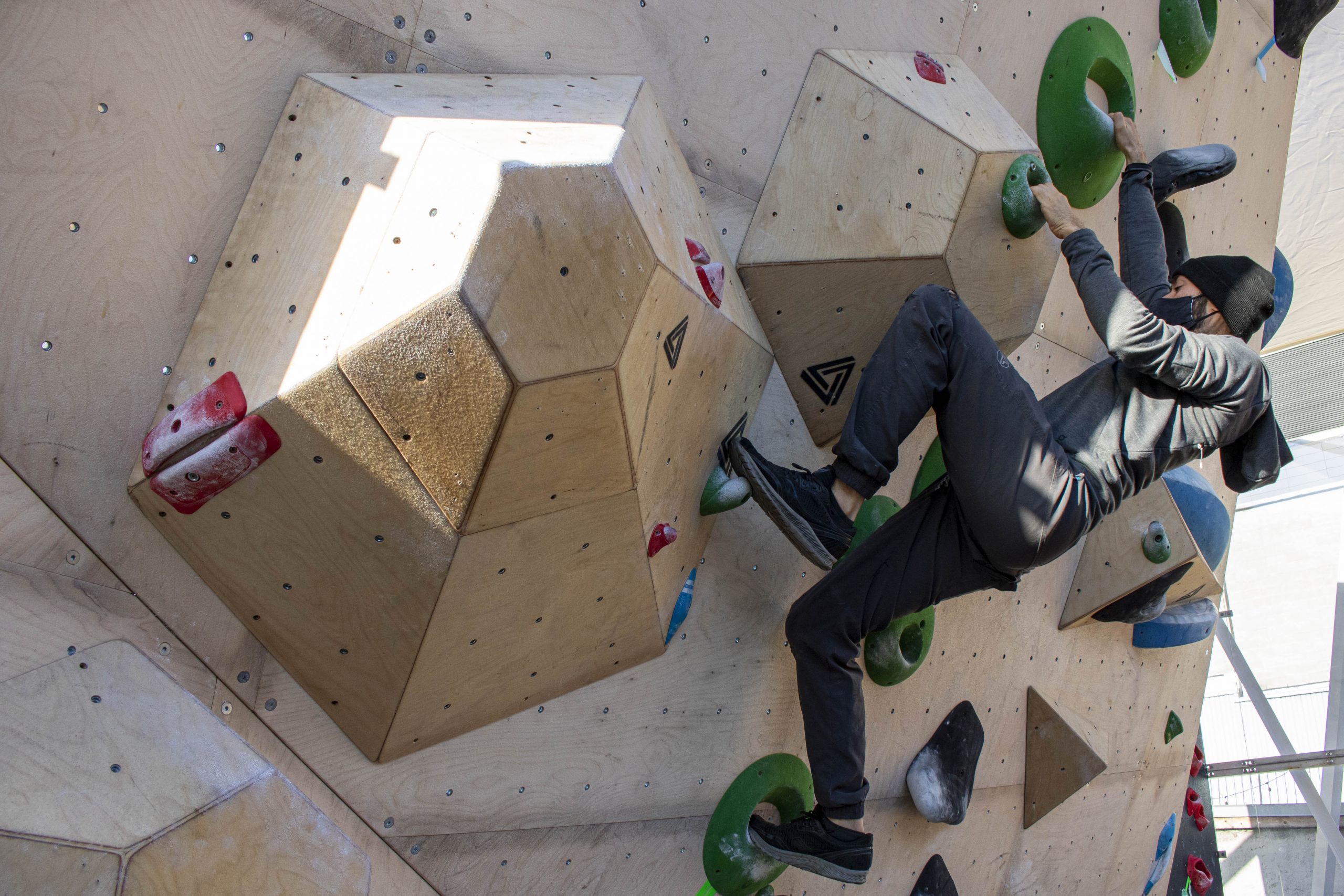A look at new bouldering gym/cafe Café Bloc on Saint-Laurent Boulevard
The story of Café Bloc begins with a dream about comradery, a sense of community and a tasteful amount of the main ingredient: a passion for rock climbing. After two years in the making, what started simply as an ambitious concept has recently turned into a reality for young entrepreneur Sébastien Aubé. Alongside his now-business partner Jean-François Gravel, the duo managed to pull off a fully functional bouldering gym in the heart of downtown Montreal at a time that does not respect any uncalculated boldness in developing new business models. Some may call it a shot in the dark but for Aubé the coronavirus comes as “an outside event that we have no control of. The only thing we can change about it is the way we perceive it.”
Just like the sport itself requires from its enthusiasts, you need to overcome obstacles to make your way to the top. As Aubé puts it, “A key element to motivation is to keep yourself active towards your goals even when you don’t feel like it.” The current situation definitely affects the business negatively but it does not put an end to the adventure.
“It is challenging,” agrees Aubé, “but not to the extent where I am going to sit in the corner and give up.” Hardships were what defined the journey of the place as it took two long years for the project to come into existence.
After a rock climbing trip in June 2018, the exciting idea to create an environment where people can simultaneously sweat it all out on the climbing wall and relax with a cup of coffee and friendly company began to grow.
At last, the moment they all had been waiting for was here. On Feb. 9, 2020, Café Bloc welcomed its first rock climbing customers and for six weeks, the dream of a community united under a mutual passion carried on. Working at full capacity, the place easily became a hotspot for those eager to solve “problems” (that is how climbing routes are referred to in a bouldering gym). No extra equipment is needed — just you and your climbing shoes. To ensure the safety of all participants, the gym follows basic security standards. There are big bouncy mats under the boulders that will catch anyone’s fall, regardless of their position on the wall.
According to Aubé, there are different challenges and they are all rated with a level of difficulty. For example, “six moves, using only blue holes, from the ground to the top can be a warm-up for someone more experienced or a good beginner problem to start with.” For better engagement and constant physical stimulus, the gym is designed to change the style of the walls regularly, thus providing new problems almost every week.
“We were open for six weeks and then we had to close on March 15 like everybody else,” Aubé vividly remembers. Despite the successful launch, COVID-19 did not spare the bouldering gym and jeopardized all the effort put into the place. However, Café Bloc learns to adapt to the changes as they come.
Their routine now consists of pressure washing the climbing holes every week, which adds to the accumulated business losses. Aubé’s team has also put hand sanitizers everywhere to accommodate the health regulations and the climbers’ needs. However, it’s up to everyone to have the responsibility of adhering to disinfecting before and after an exercise.
“It’s all about the energy everyone brings into the place,” says Aubé.
Indeed, prior to the coronavirus restrictions, the gym was running smoothly. According to Aubé, before the pandemic, they would have “people come in and overstay their welcome beyond the staff’s shifts, simply soaking in the atmosphere.” Now, Aubé wishes for nothing more than to have the gym run normally. Yet, the co-owner reflects on the current social implication as a mental challenge. Apart from technique, rock climbing represents an inner battle of overcoming your own limitations and doubts.
“Similar to rock climbing, this is just another problem we need to face and persevere, so that we can come out of it stronger and better.”
Photos by Yordan Ivanov and Kit Mergaert
